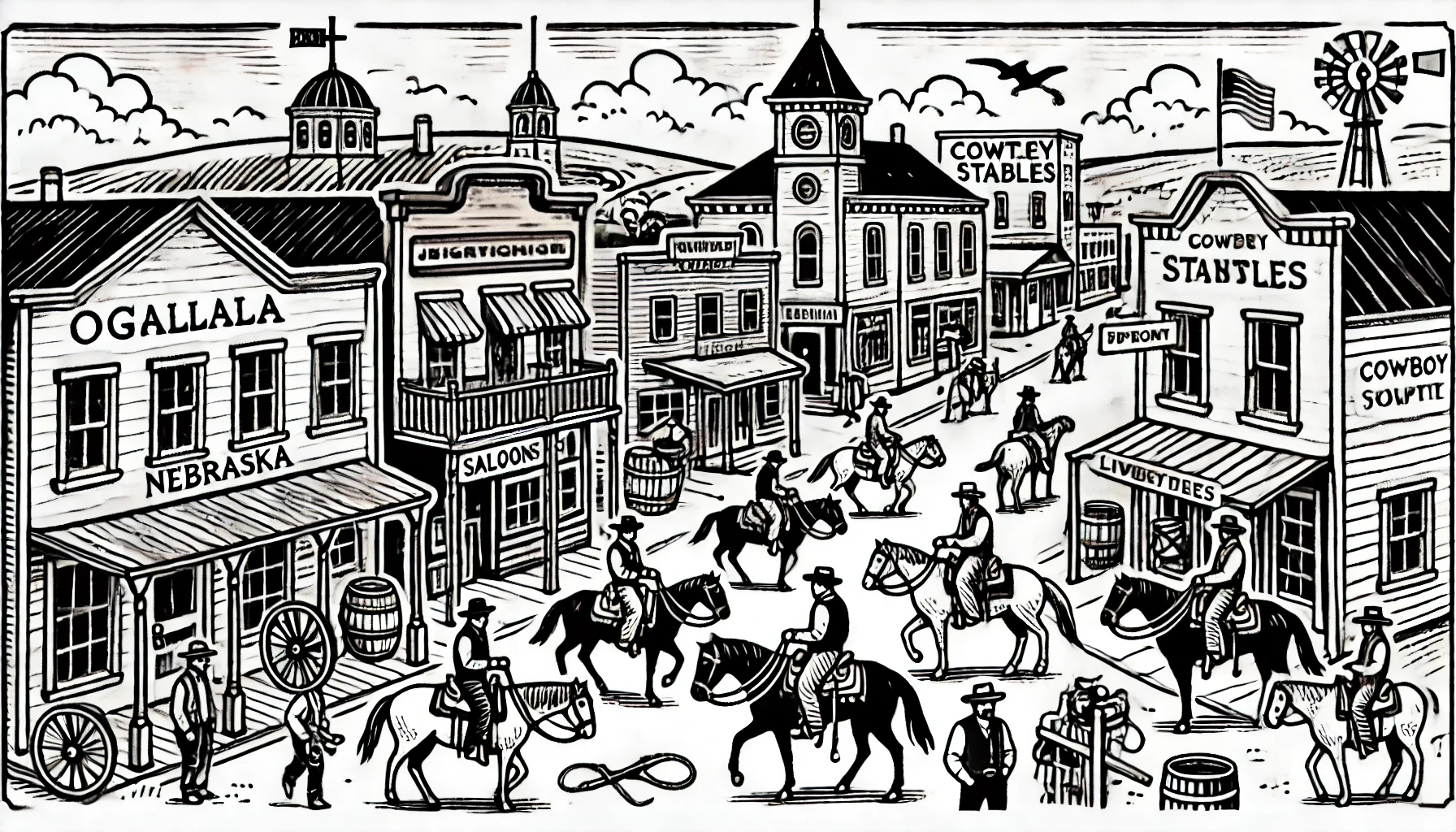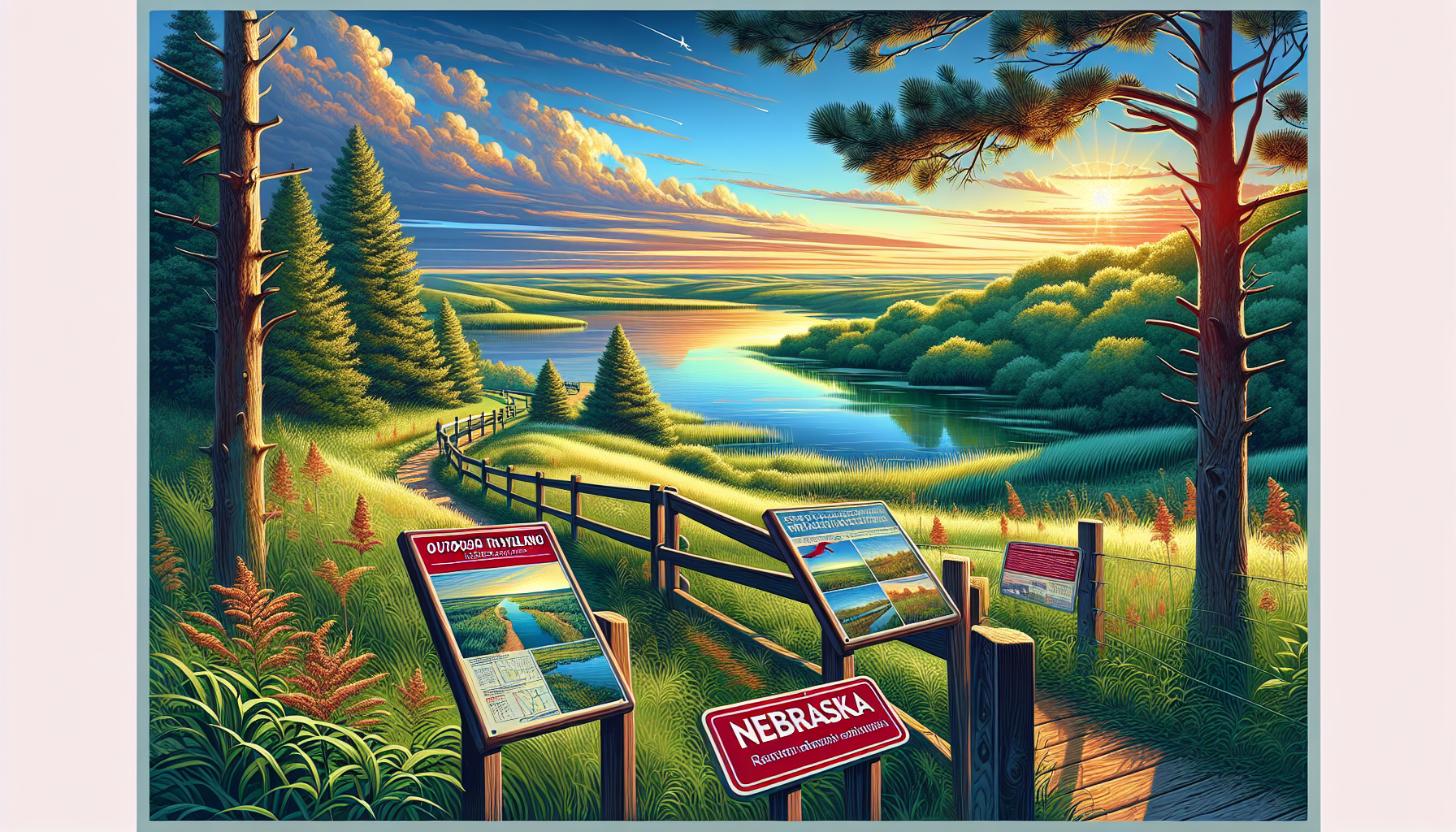Omaha Blues Heritage in Nebraska

Traveling through Nebraska, music enthusiasts are drawn to the vibrant city of Omaha, where a rich blues heritage awaits discovery. At the confluence of the Missouri and Platte rivers, Omaha's unique cultural landscape was shaped by African American migrants from the rural South and the transcontinental railroad, creating a city that would nurture and inspire a thriving blues community. This legacy of soulful expression can be experienced through various events and festivals that celebrate Omaha's blues heritage.
The city's reputation as a blues hub dates back to the 1920s, when African American migrators brought their musical traditions and instruments to the Midwest. Omaha's strong railroad network made it a strategic location for traveling musicians, and the city soon became a major stopover for renowned blues performers. One such notable musician is Wynonie Harris, who as a member of the Lucky Mills Orchestra, honed his skills in Kansas City before settling in Omaha. His fusion of jump blues and rhythm and blues ignited the city's live music scene and paved the way for other artists to perform in the city.
Today, Omaha's blues heritage can be appreciated through a variety of festivals and concerts, which celebrate both local talent and visiting musicians. The 'In the Market for Blues' festival, held annually at the Historic Old Market in Omaha, showcases the best of the city's blues scene. Similarly, the 'Omaha Blues and Jazz Festival' offers an enlightening combination of exhibitions, lectures, and lively concerts, where music enthusiasts can delve deeper into the city's blues roots.
During these festivals, local blues legends, such as singer-songwriter Luther "Guitar Jr." Johnson, an Omaha native who recorded with Muddy Waters, are honored and a testament to the city's blues connections. Johnson's travels alongside influences from Muddy Waters underscored the vast sphere of influence that musicians drew upon in this part of the United States. Hence, events hosted by the town of Omaha go beyond attending a regular festival by cultivating lasting experiences that reverberate with visitors long beyond the event dates.
However, it is not only festivals but also museums that serve to preserve Omaha's blues legacy. For instance, Durham Museum located in the stunning Art Deco-style Union Station at 801 South 10th Street in Omaha, recognizes and showcases the town's unique blend of styles via presentations focusing upon, Native American, African American, along with its Scandinavian heritage.
Music aficionados can extend their appreciation of Omaha's blues heritage by exploring the numerous music venues and dance halls which characterized Omaha's vibrant blues scene in the early 20th century. Places such as Dreamland Ballroom on North 24th Street showcased a particularly thriving nexus of music venues where musicians played some of the town's earliest jazz music. This neighborhood – the Near North Side – also boasts considerable cultural diversity with African American pioneers opening area businesses.
Omaha's rich blues heritage also benefits from the efforts of active representatives working on a national scale, all striving to contribute to the continued success of the blues. Among the notable contributors are Bill Shapiro, co-founder of the Roots of American Music Committee (ROAM) as well as its supporters of America’s mainstay of oral traditions.
Through Omaha's jazz scene influenced historic establishments that preserved diverse expressive roots, cultural music displays as well as places in Nebraska today, this one key topic connects deeply with related cultural expressions within America.
The city's reputation as a blues hub dates back to the 1920s, when African American migrators brought their musical traditions and instruments to the Midwest. Omaha's strong railroad network made it a strategic location for traveling musicians, and the city soon became a major stopover for renowned blues performers. One such notable musician is Wynonie Harris, who as a member of the Lucky Mills Orchestra, honed his skills in Kansas City before settling in Omaha. His fusion of jump blues and rhythm and blues ignited the city's live music scene and paved the way for other artists to perform in the city.
Today, Omaha's blues heritage can be appreciated through a variety of festivals and concerts, which celebrate both local talent and visiting musicians. The 'In the Market for Blues' festival, held annually at the Historic Old Market in Omaha, showcases the best of the city's blues scene. Similarly, the 'Omaha Blues and Jazz Festival' offers an enlightening combination of exhibitions, lectures, and lively concerts, where music enthusiasts can delve deeper into the city's blues roots.
During these festivals, local blues legends, such as singer-songwriter Luther "Guitar Jr." Johnson, an Omaha native who recorded with Muddy Waters, are honored and a testament to the city's blues connections. Johnson's travels alongside influences from Muddy Waters underscored the vast sphere of influence that musicians drew upon in this part of the United States. Hence, events hosted by the town of Omaha go beyond attending a regular festival by cultivating lasting experiences that reverberate with visitors long beyond the event dates.
However, it is not only festivals but also museums that serve to preserve Omaha's blues legacy. For instance, Durham Museum located in the stunning Art Deco-style Union Station at 801 South 10th Street in Omaha, recognizes and showcases the town's unique blend of styles via presentations focusing upon, Native American, African American, along with its Scandinavian heritage.
Music aficionados can extend their appreciation of Omaha's blues heritage by exploring the numerous music venues and dance halls which characterized Omaha's vibrant blues scene in the early 20th century. Places such as Dreamland Ballroom on North 24th Street showcased a particularly thriving nexus of music venues where musicians played some of the town's earliest jazz music. This neighborhood – the Near North Side – also boasts considerable cultural diversity with African American pioneers opening area businesses.
Omaha's rich blues heritage also benefits from the efforts of active representatives working on a national scale, all striving to contribute to the continued success of the blues. Among the notable contributors are Bill Shapiro, co-founder of the Roots of American Music Committee (ROAM) as well as its supporters of America’s mainstay of oral traditions.
Through Omaha's jazz scene influenced historic establishments that preserved diverse expressive roots, cultural music displays as well as places in Nebraska today, this one key topic connects deeply with related cultural expressions within America.
